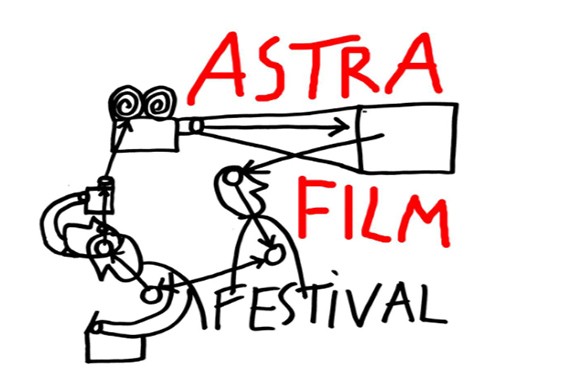For seven days between 17 and 23 of October 2016, the city of Sibiu connects to realities from all across the world through documentary film at Astra Film Festival, at its 23rd edition.
Hot issues of contemporary society, such as migration or radical Islam, outline two theme programmes in the official selection of AFF 2016. The power of documentary film lies in the fact that it succeeds at capturing contextual realities in their complexity, otherwise hardly available to the larger audience, and it delivers them with no artifice. Reality is moving, dramatic or amazing enough and it doesn’t need special effects to alter the substance of the stories.
Some films manage to X-ray reality with brilliant artistry and they are appraised and granted awards which so far have been destined to fictional films. An example is Fuocoammare (directed by Gianfranco Rosi), which received the Golden Bear at the 2016 Berlin International Film Festival and is set forth as Italy’s entry for Best Foreign Film at the Oscars, presenting the drama of thousands of African refugees who arrived on the Italian island of Lampedusa, fleeing from war and the abuses of totalitarian regimes. The film will be screened on Friday, the 21st of October, at 9:30 pm at Sala Thalia.
Dis-placement
Four films put forward the limits of empathy and go against easy simplifications, presenting a kaleidoscopic image of indistinguishable ways in which some lives are changed forever in a continuous cycle of the people who are trapped between two worlds.
Trapped by Law (directed by Sami Mustafa) reveals a controversial episode of recent history, namely the expulsion of tens of thousands of Roma people from countries in Western Europe, through the story of two Roma brothers who were forced to leave Germany, the country where they had been born, and were sent to Kosovo, whence their parents had left 30 years before. Those (directed by Krizstina Maggyes)uses a series of interviews with locals in order to show how setting up a refugee camp near a Hungarian city turns an entire community upside down. With a discreet approach of the topic of Somali refugees who walk the streets of Europe in search of a safer life, Abdul & Hamza (directed by Marko Grba Singh) finds the two protagonists always between countries and spaces, on a road that never ends. In Between (directed by Liis Lepik) is the moving story of a young woman from an Estonian family of Islamic faith, who voluntarily leaves for a refugee camp in Jordan. What are the hidden costs of such a decision?
Radical Islam at home
Thanks to the power of documentary cinema, the audience of the festival has the chance to view and delve into radical Islam at home, with local dramas and burning realities, to which they wouldn’t otherwise gain access. Films in this section avoid free exploitation of shocking images and offer new insights and nuances which are overlooked in news reports.
How do thousands of children from Pakistan become future jihadists?; Among The Believers (directed by Hemal Trivedi and Mohammed Ali Naqvi) reveals how a new generation of extremists is systematically created, the children being indoctrinated at an early age in a well-developed complex system. The Empty Room (directed by Jasna Krajinovic) unfurls the drama of a family from Belgium, whose children have decided to leave for Syria in order to become jihadists. Yet they all died! Who is behind the jihadist network recruiting and indoctrinating these young people, persuading them to become murderers in the name of Allah? Sonita (directed by Rokhsareh Ghaem Maghami) is the touching story of an 18-year-old Afghan refugee who fights against rigid traditions of arranged marriages and who finds her way as a student and aspiring rapper in the US.




















